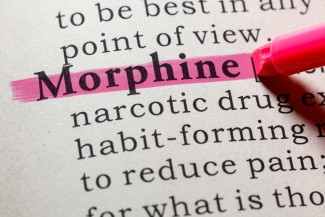The relationship between early childhood trauma and the rewarding effects of morphine

Research from the University of Exeter has highlighted how childhood trauma can make individuals more sensitive to the pleasurable and motivational effects of opioids and less sensitive to the negative consequence of the drugs.
The research, which has been published in the journal of Addiction Biology, aimed to assess the impact of childhood trauma on responses to morphine and pain processing.
As part of a randomised control trial, 52 healthy people- 27 with a history of childhood abuse and neglect, and 25 who reported no such experiences in childhood- received either an active dose of morphine or a very low dose of morphine, which would have negligible effect and acted as a control.
Results found:
- the trauma group reported liking the effects of morphine, feeling more euphoric and wanting more of the drug over the session
- the trauma group also reported fewer negative effects of the morphine such as nausea and dizziness.
The researchers conclude that.
"This may explain the link between childhood trauma and vulnerability to opioid use disorder, with implications for treatments and the prescribing of opioids medically."
